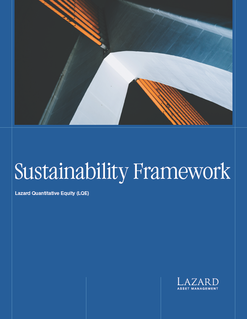Summary
The net zero transition, reminiscent of the Industrial Revolution in scale and advancing with the rapidity of the Digital Revolution, is upon us. However, traditional ESG methodologies fall short in navigating this swiftly evolving environment. The vast majority emphasise the presence (or absence) of policies, coupled with mostly subjective, backward-looking assessments. Solely using them can handicap investors trying to navigate rapid change.
In our view, despite the numerous opportunities presented by the net zero transition, significant risks remain, particularly in the form of greenwashing. Companies making misleading claims about their environmental impact expose themselves to potential litigation and reputational damage. Our research reveals that, on average, companies with low greenwashing risk are decarbonising five times faster than those with high greenwashing risk. This implies that this latter cohort faces the additional risk of lower profitability from elevated, increasingly global, carbon prices.
The Lazard Quantitative Equity (LQE) Sustainability Framework offers a systematic, forward-looking solution that addresses these shortcomings and tackles greenwashing. Our E/S/G+P model assesses risks material to a firm’s operations, in addition to how ‘green’ its revenues are. Our Climate Alignment Assessment model disentangles the myriad net zero pledges, gauging their ambition and credibility. We use advanced natural language processing techniques to illuminate a company’s planned strategy for the transition. Finally, we compare promises to actions to address the risk of greenwashing.
This holistic approach allows us to make informed, transparent decisions that are grounded in data. In doing so, it helps us deliver climate-aware investing in form and substance.
The LQE Sustainability Framework
